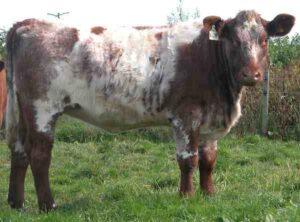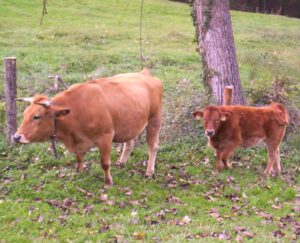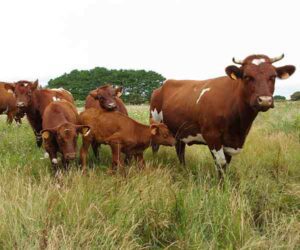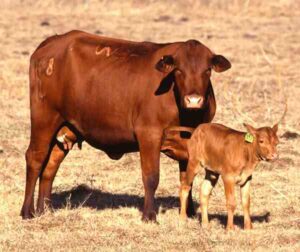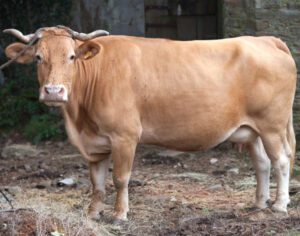The Nguni cattle are special to southern Africa where they are used for milk and meat production and also used as a draft animal. It is actually a hybrid of different Indian and later European cattle breeds.
The ancestors of these animals were introduced during the migration of Bantu-speaking tribes from the northern Africa to southern Africa between 600 and 1400 AD.
Since then, these animals have played an important economic and social role in the development of these societies. And the Nguni cattle are used as a bride’s dowry in the society.
The number of animals held by a village or individual determined much of their importance to the rest of the world. King Shaka of the Zulus understood the economic and cultural importance of these animals.
And he seized control of the Nguni herds on his domination. Today, the breed is still being used as a draft animal and also for milk and meat production.
But Nguni cattle breed is becoming increasingly popular as a meat cattle breed under sound management conditions. Read more information about the breed below.
Nguni Cattle Characteristics
Nguni cattle are of medium sized animals with many different colors and patterns. They are easily characterized by their multicolored skin. Their colors and patterns include brown, black, dappled, golden yellow, spotty or white.
The cows have small and almost non existent humps. While the bulls have well-developed, rounded cervio-thoracic humps which are muscular rather than fatty. Both bulls and cows usually have horns and their noses are always black-tipped.
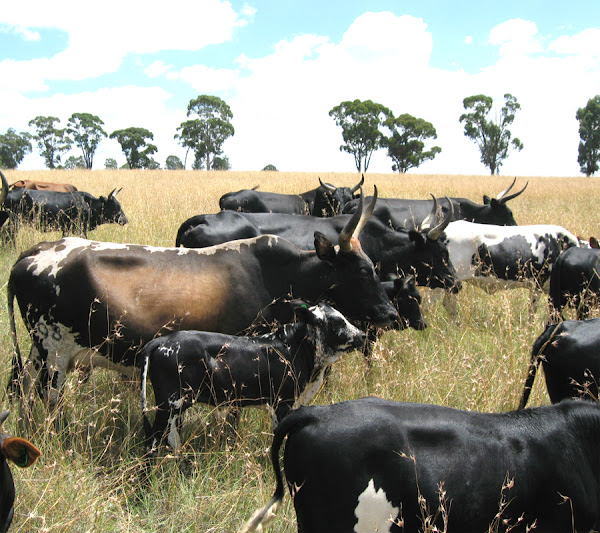
The cows on average weight between 300 and 400 kg. And average body weight of the bulls vary from 500 to 600 kg. Photo and info from Wikipedia.
Uses
The Nguni cattle are multi-purpose animals. They are used for milk and meat production and also used as a draft animal.
Special Notes
The Nguni cattle are very hardy and strong animals. They are known for their fertility and resistance to diseases and are the favorite breed amongst the local Bantu-speaking people of southern Africa. They are popular in Angola, Botswana, Namibia, South Africa, Swaziland and Zimbabwe.
The Nguni cattle are also heat and light tolerant and are well adapted to the African environment over many years. They are also known for their docile behavior and good temperament.
They develop excellent resistance to ticks and immunity to tick brone diseases, and they are less prone to dystocia. They are excellent foragers and will graze and browse on steep slopes and in thick bush alike. However, review full breed profile of the Nguni cattle in the following chart.
| Breed Name | Nguni | |
| Other Name | None | |
| Breed Purpose | Milk, Meat, Draft | |
| Special Notes | Strong, hardy, fertile, resistance to diseases | |
| Breed Size | Medium | |
| Bulls | 500-600 kg | |
| Cows | 300-400 kg | |
| Climate Tolerance | All Climates | |
| Coat Color | Many different colors and patterns | |
| Horned | Yes | |
| Milk Yield | Average | |
| Rarity | Common | |
| Country/Place of Origin | Africa |

